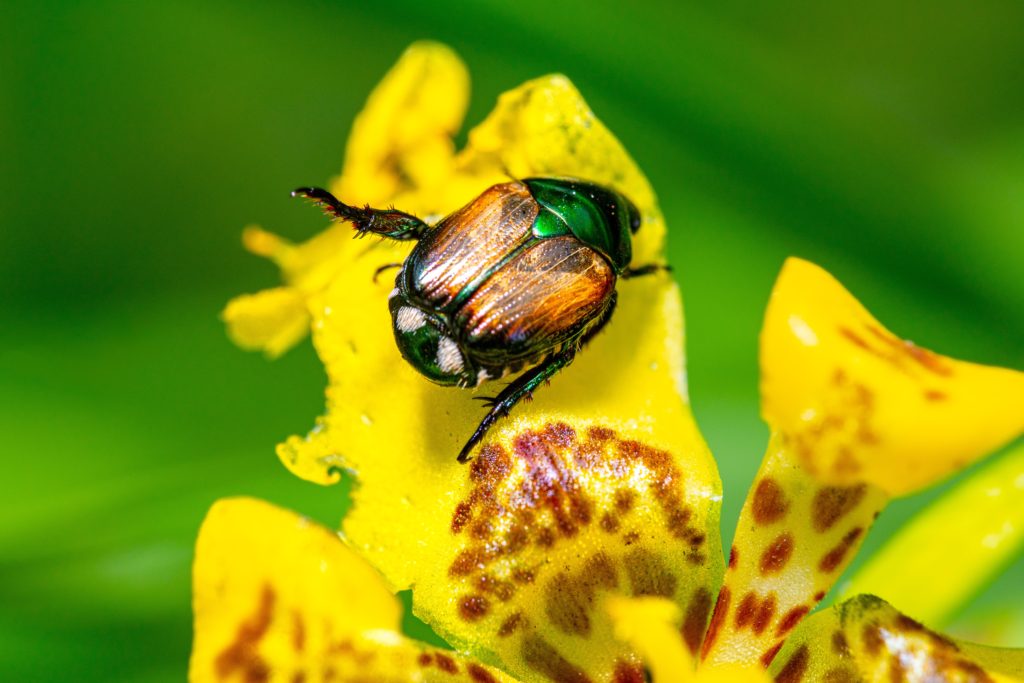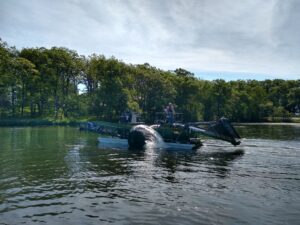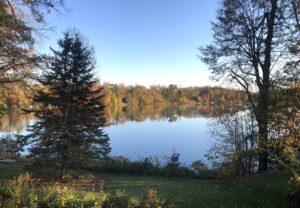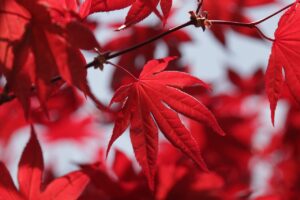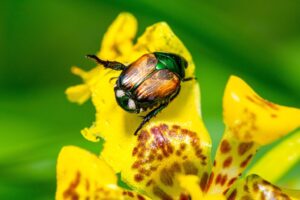ENVIRONMENTAL AWARENESS
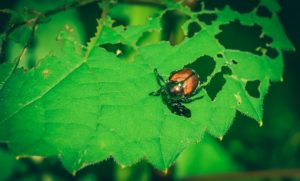
Some folks don’t care at all for the use of pesticides to control insect pests… like certain beetles: the Japanese beetle, in particular. I get it. College (and beyond) courses in ecology, entomology, biology and botany, all did their proper job of raising my level of awareness when it comes to the environment.
Pesticides are not one of my favorite remedies, either. But when it comes to a serious infestation of insects that can destroy an entire tree, shrub, or lawn – not to mention prized annuals and perennials – in a heartbeat, well, remedies are remedies. And I have to tell you that the insects of which I speak – Japanese Beetles (iridescent green beetles) – are at the top of my list when it comes to ruthless destroyers of my landscape.
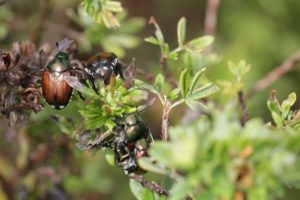
Importantly, the Japanese beetle is a pest and an invasive species. This means (according to National Geographic) they are “not indigenous, or native, to a particular area.” Invasive species can cause great economic and environmental harm to the new area, as they will feed on local vegetation until no more of it exists .
Japanese beetles (Popillia japonica) were first found in the United States in the early 1900s, after being accidentally introduced, and first discovered in Minnesota in 1968. They are now found throughout the entire eastern United States and the infestation continues to move west.
The Old Farmer’s Almanac describes them this way: “Japanese beetles… are iridescent green beetles that carry a big threat because they will feed on a wide variety of plants. You’ll often be able to identify the damage because their leaf chewing leaves a lacy skeleton.” Although they feed on a wide variety of plants, the adult beetles attack more than 300 different kinds of plants. Your roses, beans, grapes, raspberries and apples are especially at risk.
AT-RISK PLANTS
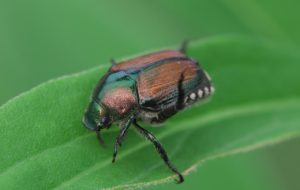
Japanese beetles have a voracious appetite and will eat just about anything green. Most prevalent in late June and early July, they will “skeletonize”, and thereby destroy most all of the plants they infect, including – but not limited to – your prized rose bushes, fruit trees, and even whole soybean fields. The adult beetles lay their eggs in the soil, hatching into larvae that live in the soil and then feed on the roots of grass, destroying your lawn. Once they turn into adult beetles and emerge the following year, they are free to start their plant-eating devastation all over again.
Last year Rice Lake had an incredibly huge infestation of these pests. And they are showing up again, as we head into July. Yes, there are ways to get rid of them – at least for a single season – other than using pesticides. But eradicate them you must, as they will continue to come back year after year if you don’t. And even if you take care of the problem and your neighbors do not, Japanese beetles will be back… with a hungry vengeance!
EFFECTIVE PRODUCT
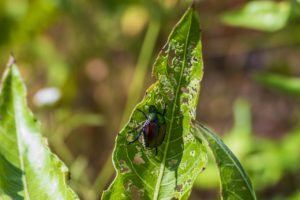
Personally, I do not have the time to chase after the adult beetles, picking them off my plants one at a time, and tossing them into a pail of water, dish soap, vegetable oil and rubbing alcohol. So, I opt for grub control (White grubs are the immature forms of Japanese beetles). I can apply the product with either a drop- or broadcast spreader. A great and effective product available at Farm & Fleet is BioAdvanced Season Long Grub Control.
Alternatively, Milky Spore Grub Control contains a bacterium that is harmful to the grub stage Japanese Beetle, but does not harm beneficial insects. It’s available at Blain’s Farm & Fleet!
Do yourself – and your neighbors – a huge favor and eradicate those incredibly invasive pests, using whatever method works best for you!
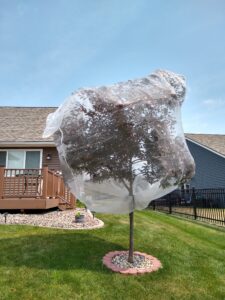
Additional Resources, Links & Products
- Japanese Beetle Article by the Minnesota Department of Agriculture
- 10′ x 10′ Large Fruit Tree Netting with Zipper & Drawstring (Amazon)
- Japanese beetles in yards and gardens, University of Minnesota Extension
- Scotts GrubEX Season Long Grub Killer (Ace Hardware)
- Scotts Turf Builder EdgeGuard DLX Broadcast Spreader (Blain’s Farm & Fleet)
- Read more about the damage grubs can do to your lawn (Pro Care Lawn Service)

